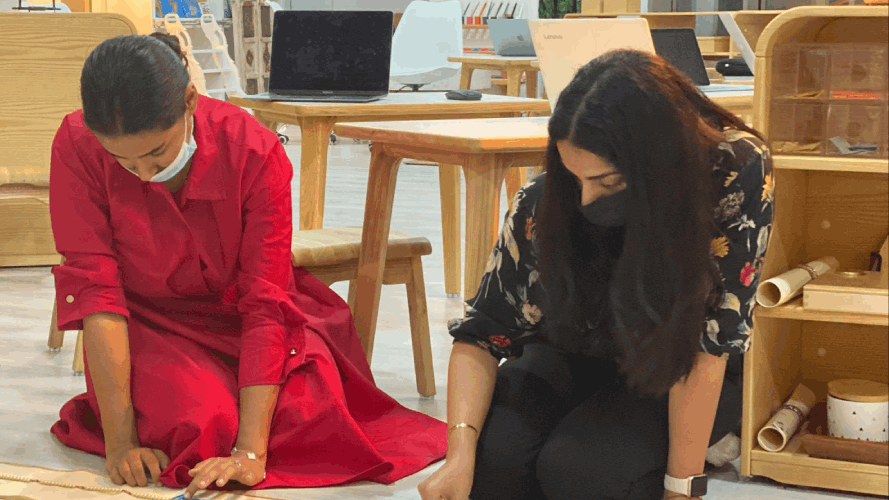
Montessori education is rooted in a deep understanding of child development. Maria Montessori identified four distinct planes of development, each characterized by unique needs, sensitivities, and learning approaches. Recognizing these planes allows educators to tailor their teaching methods to support the natural growth of children at every stage. The Manama Montessori Teacher Training Centre (MMTC) provides in-depth training on these developmental phases, ensuring that Montessori teachers can effectively guide children through their educational journey.
The Four Planes of Development
Maria Montessori categorized child development into four main stages:
- First Plane (0-6 years): The Absorbent Mind
- This stage is characterized by rapid brain development and the child’s ability to absorb information effortlessly from the environment.
- It is further divided into two sub-stages:
- 0-3 years: Unconscious absorption, where the child learns through sensory experiences.
- 3-6 years: Conscious absorption, where the child begins to refine skills such as language, movement, and independence.
- Montessori classrooms at this level focus on sensory exploration, practical life skills, and early academic foundations.
- Second Plane (6-12 years): The Reasoning Mind
- Children develop logical thinking, imagination, and a thirst for knowledge.
- They exhibit a strong sense of curiosity and seek to understand the ‘why’ behind concepts.
- Social interactions become crucial, and group learning is emphasized.
- Montessori education at this stage encourages collaborative projects, exploration, and hands-on learning in subjects such as science, history, and mathematics.
- Third Plane (12-18 years): The Social Self
- Adolescents experience significant physical, emotional, and social changes.
- They develop a strong sense of identity and seek independence.
- Practical, real-world experiences, such as internships and entrepreneurship opportunities, are emphasized.
- Montessori environments for adolescents support self-expression, problem-solving, and engagement with society.
- Fourth Plane (18-24 years): The Independent Self
- Young adults transition into full independence, refining their skills and preparing for professional and personal life.
- The focus shifts to higher education, career development, and contributions to society.
- Montessori principles continue to play a role in fostering critical thinking, adaptability, and lifelong learning.
How Montessori Teachers Adapt to Each Plane
The training programs at MMTC equip educators with the tools needed to support children at each developmental phase:
- 0-6 years: Training emphasizes sensory activities, language development, and the creation of an enriching learning environment.
- 6-12 years: Educators learn how to encourage curiosity through research projects and interdisciplinary learning.
- 12-18 years: Teachers are trained to guide adolescents in self-exploration, practical skills, and societal engagement.
The Impact of Developmental Awareness on Education
Understanding the four planes of development allows Montessori educators to:
- Respect each child’s natural learning pace.
- Provide age-appropriate learning materials and experiences.
- Support the social and emotional growth of students.
- Foster a lifelong love for learning.
Montessori education goes beyond traditional teaching by recognizing the evolving needs of children at different life stages. By training at MMTC, educators gain a deep understanding of the four planes of development, ensuring they can effectively guide students from infancy to young adulthood. This knowledge not only enhances teaching practices but also creates a transformative learning experience for children, helping them reach their full potential.
